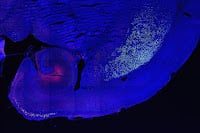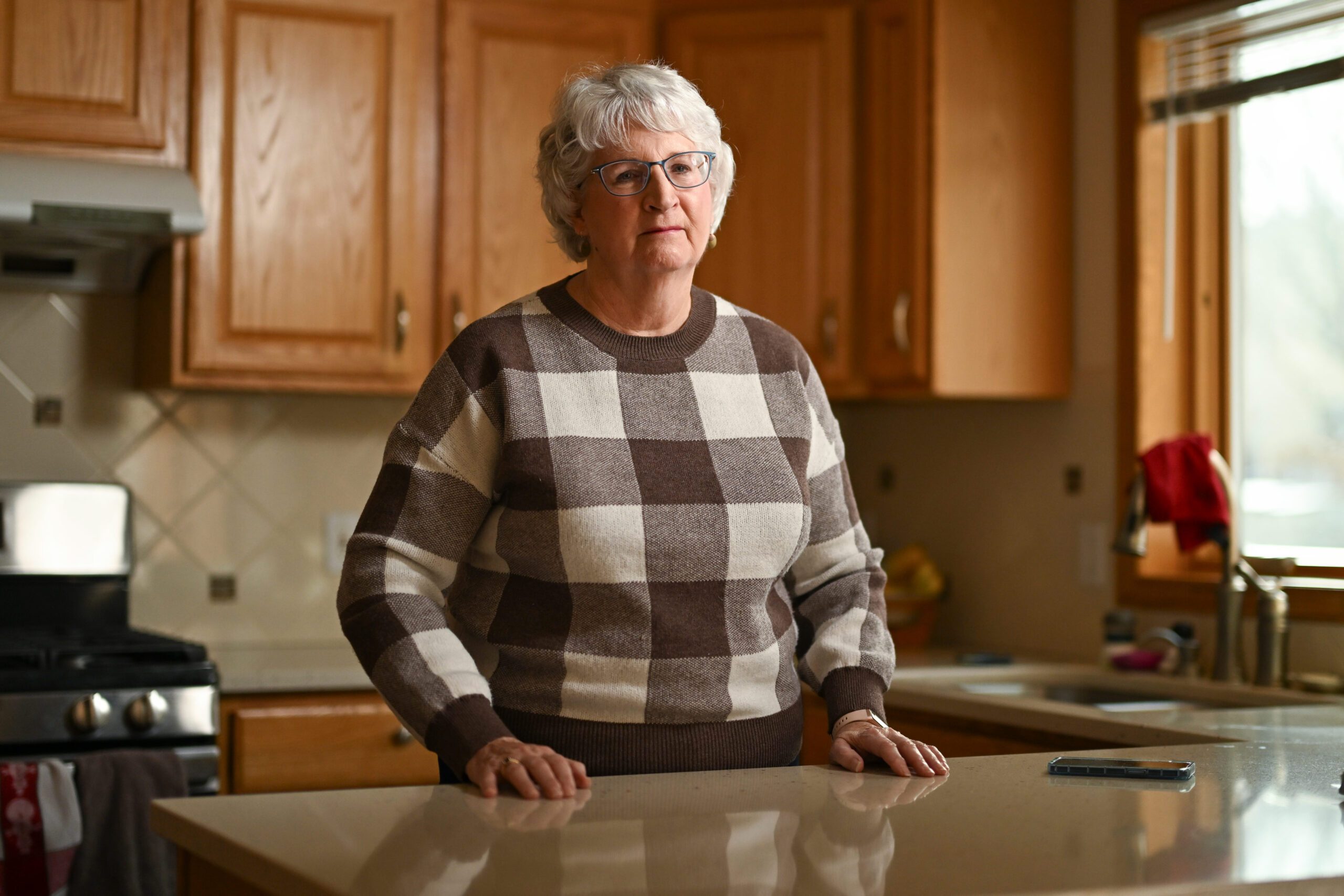By Anne Borden King
Ed. note: Second of a three-part series.
Over the past five years, there has been an explosion of health disinformation and harmful products for sale on social media. These scams have real consequences, especially for vulnerable children whose parents purchase these products in an attempt to “cure” their children’s disabilities, such as autism.
Now, it appears the Canadian government may take action.
In my five years of studying and covering autism social media groups, I’ve found autism disinformation is as common as Marvel memes and lunchtime selfies. Join any “healing autism” parent group on Facebook and you’ll find a trail of snake-oil caravans, selling products such as bleach droplets (MMS); camel’s milk; chelation; homeopathic CEASE “therapy” that claims to detox children of vaccines and antibiotics; chlorophyll; fecal capsules; GcMAF (an unregulated blood product); turpentine; ivermectin and more. None of these can treat autism despite the dealers’ claims. Unlike radio, television and mainstream media, there are no clear governmental regulations against selling these harmful products on social media. For their part, social media companies rarely remove the content when advocates report it.
Online health scammers entered the public spotlight during the pandemic, when they re-purposed their fake autism-cure products as COVID cures. As my colleagues and I wrote in a 2020 New York Times op-ed about MMS-bleach sellers offering COVID treatments:
“It has taken a pandemic to expose this movement and the ways that pseudoscience scammers use social media and fear to sell their products. It’s crucial, now more than ever, to look at the consequences of misinformation and why we need a more responsible approach to content management from big tech companies such as Facebook and our regulating authorities.”
The formula is the same whether it’s a fake cure for autism, COVID or cancer. Dealers leverage the mysteries of a disease or condition, preying upon what we don’t know while claiming they have the answers. Autism is the perfect condition for their ploy. Unlike COVID and cancer, there are no biomarkers for autism; it is diagnosed based on observable behaviours. Although we don’t know what causes autism, parents are seeking answers. Enter the scammers who claim they’ve discovered a cause – and, quite conveniently, have a solution for sale.
Although there are evidence-based standards of care for autism (such as speech-language therapy and occupational therapy), none of them erase or cure autism; rather, they help improve the quality of life for an autistic person. For parents seeking a cure, scammers provide easy answers in online communities of “support” that echo belief systems focused on their products.
The most infamous among these beliefs is the “vaccines cause autism” myth. As Paul Offit, author of Autism’s False Prophets, has pointed out, this myth was born decades before it was popularized by Andrew Wakefield, who in 1998 published a since-retracted paper in the Lancet, claiming a link between the two. The myth gained prominence with Wakefield, who imbued it with a conspiratorial tone that drew people in. Many parents believed Wakefield “because he was a doctor and a researcher,” Offit told me. “He was attractive and charismatic and passionate and a believer,” all characteristics that attracted parents who were feeling fearful and helpless.
Offit, who was a voting member on the U.S. Centres for Disease Control’s Advisory Committee for Immunization Practices at the time, recalled seeing parents at protests with their autistic children, whom they’d dressed in T-shirts that read “Damaged by Mercury.” The idea that autism was a kind of contamination quickly took hold, much to the detriment of the children themselves.
“By making autism a story of damage, that stigmatized those children,” Offit notes.
In the 12 years that it took the Lancet to retract Wakefield’s disinformation, the myth that autistic children were a toxic, broken and damaged version of normal took hold in a slew of products claiming to “detox” the autism out of them. Dealers of oral and IV chelation, as well as MMS, claim the process will remove toxins they say cause autism. Fecal-transplant dealers claim their product can override autism via infusions of a non-autistic person’s feces into a child’s large intestine. Stem-cell scammers make a similar claim. But there’s no evidence that any of these infusions and “detox” programs can cure an autistic child.
“By making autism a story of damage, that stigmatized those children.”
There’s been a lot of ink spilled on Wakefield, just as media now is focusing on the larger-than-life figure of Robert F. Kennedy and his anti-vaccine views. But in conversations about autism disinformation, we often lose sight of the victims: the children. As adults, we are responsible for determining our role in protecting them from treatments that they did not consent to, being sold through false claims to their parents via social media. If companies like Meta, TikTok, Twitter and Telegram will not control disinformation about vaccines and autism on their platforms, who will?
Canadian Senator Stanley Kutcher is one of several Canadians trying to answer that question. He points out that there is “no coherent or policy-driven approach to combating health disinformation in Canada. Some regulations are coming into place, such as labelling of homeopathic products, but these are more ad-hoc and may be inadequate and insufficient.”
“At their mildest they remove money from the pockets of people who can ill afford to spend on useless products or interventions,” Kutcher told me. “At their most harmful they can lead to death or substantive injury.”
To address this problem, the senator recently tabled Motion No. 113, calling for a study “on health misinformation, its impacts on Canadians and potential remedies.” If all goes well, it will be discussed in the Senate this fall. Kutcher says the government may also explore the legal options available to Canadians who have been taken in by false claims and suffered from it.
As well, he would like to open discussion on how to create “easily accessible on-line resources that critically evaluate health claims of products and interventions that purport to ‘treat’ autism” and other conditions. Several such guides have been developed by the United Kingdom, for example, through its NICE program. In the U.S., the Food and Drug Administration has also created educational information on how to spot fraudulent autism products.
Kutcher also wants to study the social outcomes of health disinformation on all Canadians. Discussing the pipeline between health disinformation and health-related conspiracy theories, he observes that these can also lead to “a variety of non-health conspiracy theories and through them, threats to civil society and our democratic institutions.” This cascade effect may be one reason Canada’s National Security and Defence Committee has also raised the alarm.
Kutcher points out that along with content regulation, we also need public education. Dealers of health disinformation would not be profiting, after all, if there were no demand for their products.
To understand what’s motivating parents to believe that products like bleach, turpentine and ivermectin can cure autism (or anything else in humans), we need to dive deep and understand why so many Canadians have lost faith in mainstream medical authorities. Says Offit, Kennedy’s style of message “appeals to this idea that there are dark forces out there to do you harm … an unholy alliance between the pharmaceutical industry and the government and doctors to hide the truth.” RFK has channeled people’s fears and anger, driving them toward his own personal brand, promising that he is a truth teller. The question we need to explore is why his message resonates with so many.
In the wake of the pandemic, we are now staggering dangerously in the direction of a post-truth world. Sadly, those of us who predicted the pandemic would pull everyone together appear to have made a terrible miscalculation. In my work educating parents, I no longer rely on breaking things down into “science versus pseudoscience” because the very concept of scientific authority has been so displaced. As both Offit and Neurotribes author Steve Silberman have noted, much persuasion doesn’t happen through a debunking or a bullet list of facts, but rather through stories that reach into the heart. To Offit, we need to get information to people “in a compassionate and compelling way.”
There are factors we can’t measure in datapoints, such as the inner emotional lives of autism families who are vulnerable to the sales pitches. It is a world I’ve witnessed through the fishbowl of social media groups where desperate families have gotten to the point of using harmful autism “cures” on their vulnerable children. Regulation and enforcement are crucial, but so is understanding the social landscape that drives people towards disinformation to begin with.
In the third and final section of this series, Anne looks at how Canadian law enforcement and U.S. Marshals organized to take down Genesis II, a company that was selling MMS, a bleach product, as a cure-all health product on social media. The leaders of Genesis II were found guilty on July 19 in Florida of conspiring to defraud the U.S. government and the FDA by distributing an unapproved and misbranded drug, Miracle Mineral Solution (MMS).
![]()
—
This post was previously published on HEALTHYDEBATE.CA and is republished under a Creative Commons license.
***
You may also like these posts on The Good Men Project:
 White Fragility: Talking to White People About Racism
White Fragility: Talking to White People About Racism  Escape the “Act Like a Man” Box
Escape the “Act Like a Man” Box  The Lack of Gentle Platonic Touch in Men’s Lives is a Killer
The Lack of Gentle Platonic Touch in Men’s Lives is a Killer  What We Talk About When We Talk About Men
What We Talk About When We Talk About Men Join The Good Men Project as a Premium Member today.
All Premium Members get to view The Good Men Project with NO ADS.
A $50 annual membership gives you an all access pass. You can be a part of every call, group, class and community.
A $25 annual membership gives you access to one class, one Social Interest group and our online communities.
A $12 annual membership gives you access to our Friday calls with the publisher, our online community.
Register New Account
Log in if you wish to renew an existing subscription.
Username
First Name
Last Name
Password
Password Again
Choose your subscription level
- Yearly - $50.00 - 1 Year
- Monthly - $6.99 - 1 Month
Credit / Debit Card PayPal Choose Your Payment Method
Auto Renew
Subscribe to The Good Men Project Daily Newsletter By completing this registration form, you are also agreeing to our Terms of Service which can be found here.Need more info? A complete list of benefits is here.
—
Photo credit: iStock.com
The post Health Disinformation Is Harming Autistic Children: Are Canadian Government Regulations on the Horizon? appeared first on The Good Men Project.
Original Article










